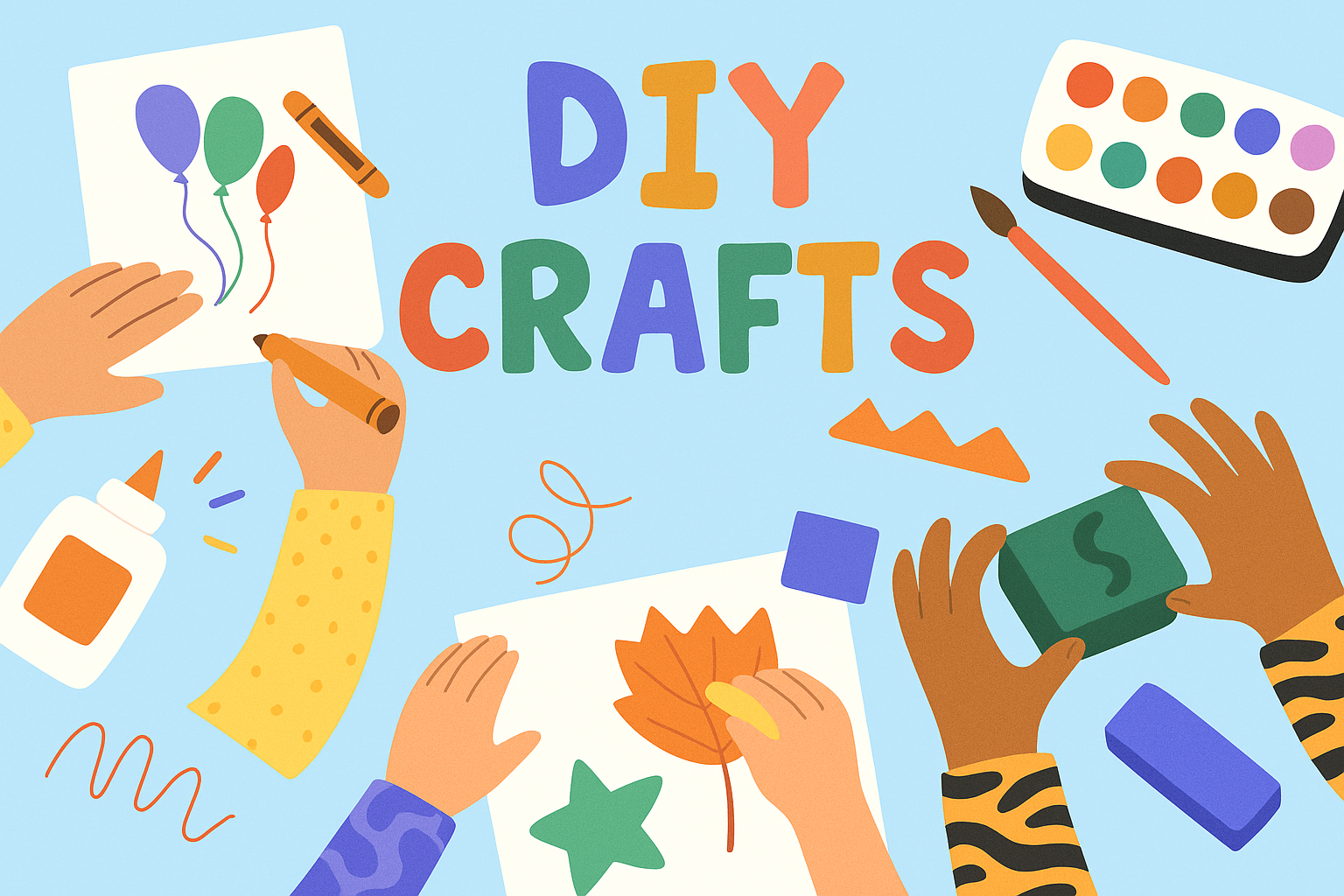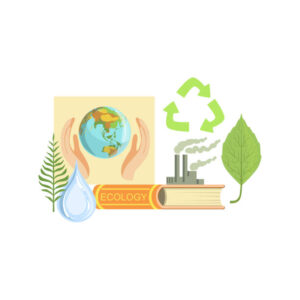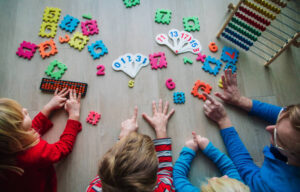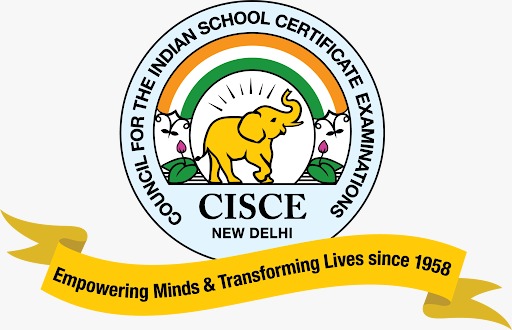Introduction: When Glue and Imagination Come Together
In a world where screens are often the go-to for entertainment, there’s something magical about a child choosing scissors, paper, and glitter instead. DIY crafts offer more than just a fun activity—they spark creativity, build focus, and bring out the joy of making something with your own hands.
Crafting helps kids express themselves, solve problems creatively, and even learn patience. Whether it’s a sunny weekend or a rainy afternoon indoors, DIY crafts provide endless possibilities to learn while having fun. With simple supplies, children can transform everyday items into something imaginative and entirely their own.
Why DIY Crafts Matter
DIY crafts are far more than a way to pass time—they are a valuable developmental tool that enriches children’s learning experiences in various ways:
- Creative Expression: Crafting empowers children to express their thoughts, emotions, and ideas visually. Whether they’re drawing a favorite animal or designing a dream house, kids are free to explore their imagination without limitations. This freedom builds innovative thinking and originality from an early age.
- Motor Skill Development: The simple actions of cutting, folding, coloring, and pasting help refine a child’s fine motor skills. These activities enhance hand-eye coordination, finger strength, and control—skills that are crucial for writing, typing, and other academic tasks.
- Screen-Free Fun: In today’s digital-heavy environment, crafts offer a much-needed break from screens. DIY activities encourage mindfulness, focus, and creativity while reducing reliance on gadgets—making them an ideal part of any digital detox routine.
- Confidence Building: There’s a unique sense of pride that comes from creating something from scratch. When children finish a craft and see it displayed on the fridge or shared in class, it builds self-esteem and motivates them to take on more challenges.
- Educational Value: Crafting supports various academic and life skills. It enhances spatial awareness, sequencing, problem-solving, and even early math concepts like shapes and symmetry. Schools that emphasize holistic learning, such as Cambridge schools in Bangalore, often integrate crafting into project-based lessons to make education more interactive and hands-on.
Top 10 DIY Craft Ideas for Kids
1. Paper Plate Animals
What You Need: Paper plates, markers, colored paper, googly eyes, glue
What To Do: Draw and cut out animal features like ears or fins and glue them onto painted plates.
Why It’s Great: Helps kids learn about animals, shapes, and colors.
2. Recycled Bottle Planters
What You Need: Plastic bottles, scissors, paint, soil, seeds
What To Do: Cut bottles in half, paint them, and plant seeds inside.
Why It’s Great: Teaches responsibility and sustainability.
3. Popsicle Stick Puzzle
What You Need: Popsicle sticks, tape, markers or paints
What To Do: Tape sticks together, draw a picture, then take it apart and try to rebuild it.
Why It’s Great: Builds memory and sequencing skills.
4. Button Art Boards
What You Need: Cardboard, buttons, glue
What To Do: Outline a design and stick buttons to fill it in.
Why It’s Great: Strengthens fine motor skills and color sorting.
5. Egg Carton Caterpillars
What You Need: Egg carton, paint, pipe cleaners, googly eyes
What To Do: Paint the carton, attach eyes and antennae to form a caterpillar.
Why It’s Great: Encourages recycling and introduces insect learning.
6. DIY Bookmarks
What You Need: Cardstock, ribbon, stickers, markers
What To Do: Cut bookmarks and decorate with fun themes.
Why It’s Great: Promotes reading and personalization.
7. Tissue Paper Collage
What You Need: Colored tissue paper, glue, plain paper
What To Do: Tear tissue into pieces and stick them onto a shape or background.
Why It’s Great: A sensory-rich art form that boosts creativity.
8. Marble Maze Shoebox
What You Need: Shoebox lid, straws, glue, marble
What To Do: Glue straws to form a path and tilt the box to roll the marble.
Why It’s Great: Teaches planning and basic physics.
9. Sock Puppets
What You Need: Old socks, buttons, thread, felt or fabric scraps
What To Do: Sew or glue features onto the sock to create characters.
Why It’s Great: Enhances imagination and storytelling.
10. Origami Shapes
What You Need: Colored origami paper
What To Do: Fold paper into animals, stars, or boxes using simple patterns.
Why It’s Great: Builds focus and introduces geometry concepts.
Crafts by Skill and Learning Benefit
| Craft Type | Skills Developed | Ideal Age Group |
| Paper Collage | Fine motor skills, color sorting | 3–6 years |
| Story Stones | Vocabulary, sequencing | 6–9 years |
| Bottle Planters | Sustainability, responsibility | 7–12 years |
| Popsicle Puzzle | Problem-solving, memory | 5–9 years |
| Sock Puppets | Storytelling, communication | 6–10 years |
This quick reference table helps parents and educators choose crafts based on age and learning focus. Many of these projects also align with themes from after-school activities or classroom enrichment programs.
Tips for a Smooth Crafting Experience
- Set up a designated craft zone to keep mess contained
- Choose age-appropriate tools and materials
- Reuse household items for sustainable crafting
- Encourage children to present or explain their creations
- Display finished crafts at home to build confidence
Craft time isn’t about perfection—it’s about exploration, discovery, and joy. In many best Cambridge schools in Bangalore, such activities are an integral part of learning, helping students build creativity alongside academics.
Conclusion: Let the Creativity Begin
From bookmarks and bottle planters to story stones and sock puppets, the world of DIY crafts is a colorful, hands-on gateway into imagination. These fun activities don’t just pass the time—they help children discover new skills, build confidence, and learn more about themselves.With just a few basic supplies and a lot of enthusiasm, every child can turn ordinary objects into extraordinary creations. So why wait? Roll out the paper, open the glue, and let creativity lead the way!
FAQs
Children as young as 2 can start with supervised, simple crafts using safe materials.
They support motor skills, creativity, problem-solving, and even emotional expression.
Absolutely! Many align with learning outcomes in leadership or project-based learning programs.
Paper plate animals, button art, and tissue paper collages are simple and beginner-friendly.
Use themes, storytelling, or group projects. Tie into learning themes to add meaning and purpose.








